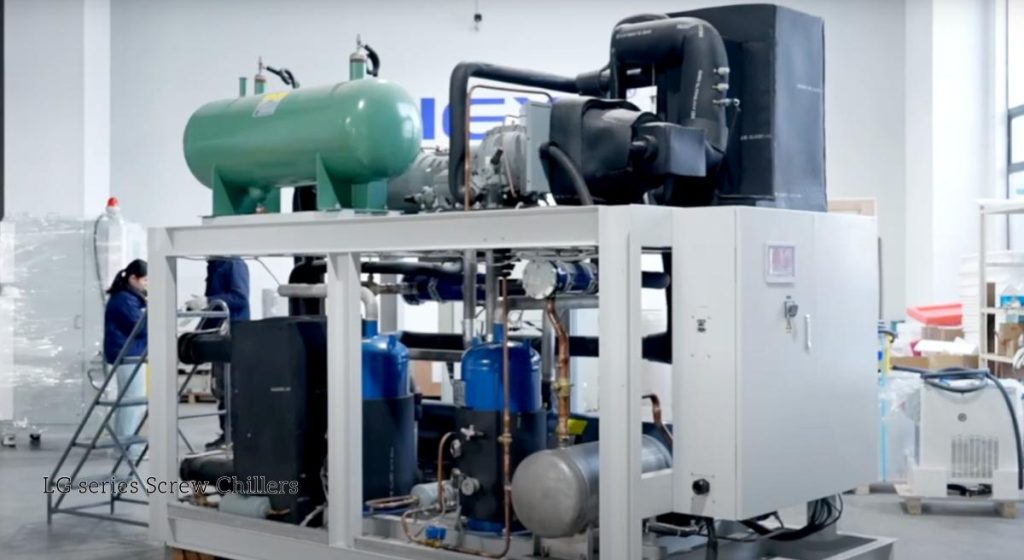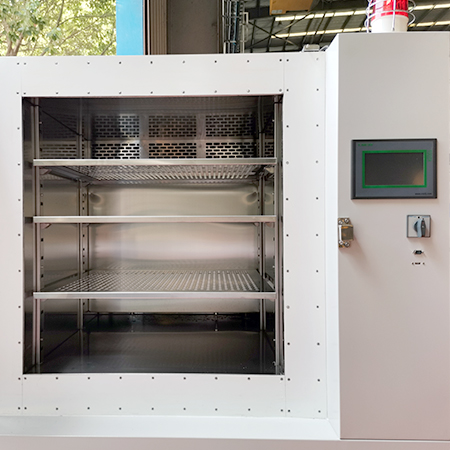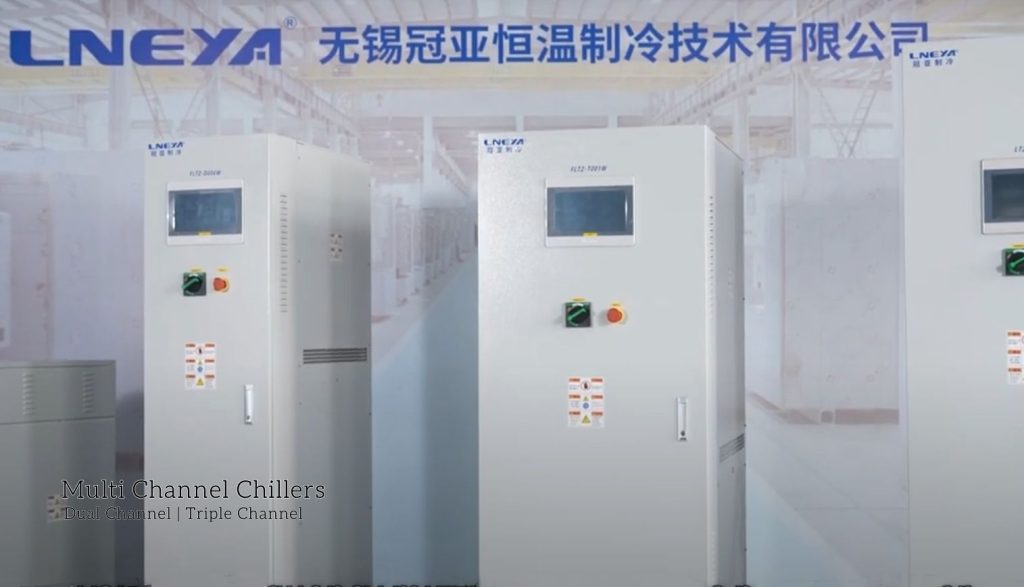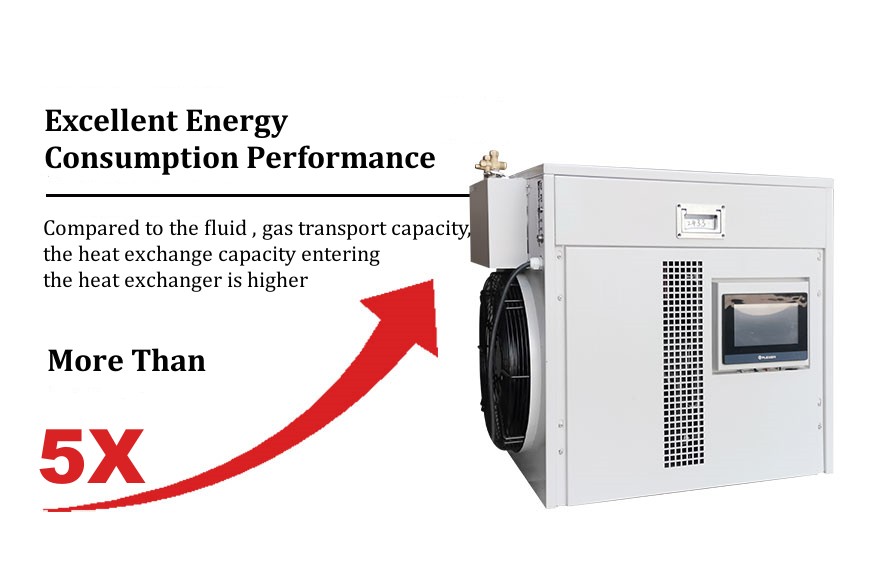Common Certifications for Industrial Chillers

- How to Upgrade an Old Chiller to Improve Efficiency
- Chiller Tanks Comparison Expansion Tank vs Buffer Tank
- Expansion Tanks in Semiconductor Chillers
- How Explosion-Proof Chillers Work Principles and Design
Different countries and regions have mandatory requirements for electrical, energy efficiency, and environmental performance. Industrial chillers certified by authoritative organizations signify that they have undergone rigorous testing and are proven to operate safely and stably. Certified equipment can bear the certification mark, which builds user trust and facilitates international market access for chiller manufacturers. This article explains the common international chiller certifications.
Safety Certification
UL (Underwriters Laboratories)
The UL mark indicates that a device has passed UL testing and meets US electrical and fire safety standards. This certification is a crucial qualification for products entering the US market. It verifies the safety of electrical components such as power cords, switches, and control boxes, and tests the entire unit for fire resistance, shock absorption, and leakage protection.

CE (Conformité Européenne)
The CE mark indicates compliance with EU regulations. It is a mandatory safety standard for industrial chillers entering the European Economic Area market. Products without the CE mark may be detained at customs or subject to fines. This standard requires that equipment must be harmless to humans, have no electromagnetic interference in electrical systems, be made of environmentally friendly materials, and have pressure-related circuits comply with regulations.

CSA (Canadian Standards Association)
CSA is Canada’s national standards-setting and certification body. Products lacking this certification may not be sold or used properly in the Canadian market. This certification tests the equipment’s electrical protection, structural stability, grounding, and explosion-proof features.

ETL (Electrical Testing Laboratories)
ETL is a product safety certification performed by Intertek, a US company. It references UL and CSA standards and complies with US and Canadian safety standards. This standard tests the electrical safety of chillers as a whole and the compliance of their components, and requires periodic factory audits.

Environmental and Energy Efficiency Certification
RoHS (Restriction of Hazardous Substances Directive)
RoHS is an environmental regulation enacted by the European Union that restricts the use of hazardous substances such as lead, mercury, and cadmium in electronic and electrical equipment. Therefore, chillers must use RoHS-compliant materials for their electrical components, cables, and connectors; otherwise, they will not be allowed into the EU market.
REACH (Registration, Evaluation, Authorization and Restriction of Chemicals)
REACH is the EU regulation for chemical management. Manufacturers must ensure that coatings, gaskets, seals, and plastic components do not contain substances on the SVHC list or only do so within permitted limits. Failure to do so could affect product exports to the European market.
Industry and Regional Certifications
ISO 9001
ISO 9001 is the most widely used quality management standard globally. It requires chiller manufacturers to have a comprehensive quality control system. This standard is often the minimum threshold for export.
ISO 14001
ISO 14001 is an international standard for corporate environmental management, requiring companies to control air and water emissions, noise, and resource use during production. This certification demonstrates a company’s environmental awareness and green manufacturing capabilities.
AHRI (Air-Conditioning, Heating, and Refrigeration Institute)
AHRI is a leading North American HVACR certification organization, primarily evaluating the performance of industrial chillers and other equipment under standard operating conditions for compliance with publicly available standards.
PED (Pressure Equipment Directive)
PED applies to equipment operating in the EU with pressures greater than 0.5 bar, such as heat exchangers, pressure vessels, and liquid storage tanks in chillers. Equipment certified under this certification has lower safety risks.
GOST-R/EAC
GOST-R is the former Russian certification system, which has been replaced by EAC (Eurasian Conformity). EAC applies to Russian-speaking markets such as Russia, Belarus, Kazakhstan, Armenia, and Kyrgyzstan and is a mandatory compliance requirement. Any chiller exported to these countries must bear the EAC certification mark; otherwise, the product will not be cleared or sold.
Certification Preferences by Market
Certification preferences vary by country and region. The following are common certifications used in different markets.
| Typical Chiller Certifications by Region | |
| Market Region | Common Certifications |
| North America | UL, ETL, CSA, Energy Star |
| Europe | CE, RoHS, REACH, PED, ISO |
| Middle East | CE, SASO, ISO |
| Southeast Asia | CE, ISO |
| Russia | EAC, GOST-R |
| Australia | CE, RCM, ISO |
How to Verify the Authenticity of a Chiller Certification?
1. Check the certificate number and issuing authority. Enter the certificate number on the official website to verify authenticity.
2. Request a scanned electronic copy of the certification from the chiller manufacturer.
3. Pay attention to the certificate’s validity period and whether it matches the product model.
Conclusion
Industrial chillers certified by a reputable organization offer more reliable performance, but this also means the equipment may be more expensive. Consider both cost and certification when choosing a chiller. All LNEYA equipment is CE, ISO 9001, and other certifications. If you would like more details about our certifications before making an inquiry, feel free to contact us.
Related chillers
CONTACT US
TEL:
EMAIL:
WeChat & WhatsApp:

Wechat QR

Have a question or need a quote? Fill out the form below, and our team will get back to you within 24 hours.
 LNEYA Industrial Chillers Manufacturer Supplier
LNEYA Industrial Chillers Manufacturer Supplier
















